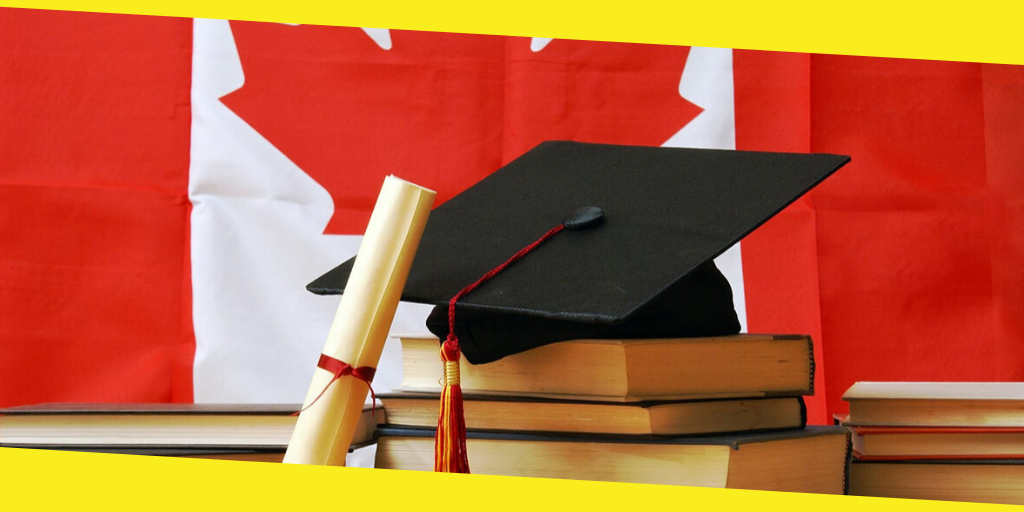Travel and Study in Canada: A Simple Guide for Australian Students
This post was last updated on July 6th, 2020
Canadian tourism has hit new records in 2017, with almost 21 million foreigners visiting the country during this year and all this considering a population of only 37 million people. Besides its touristic attractiveness, there are many foreigners who choose to study in Canada by enrolling in colleges or universities for Bachelor, Master, or PhD degrees. Thus, according to Statistics Canada, the country hosted about 246.000 international students in the 2016/2017 academic year – this amounts to 12% of total student enrolments. Moreover, while local enrolments were relatively constant, international enrolment rose by 11% compared to the previous academic year – in fact, this figure is rising for two decades already, denoting a well-established trend powered by several underlying factors.

Contents
ToggleCanadian Education System
Canada has 90 universities, of which 26 can be found in the QS World University Rankings® 2019 – a popular annual ranking that lists the top 1000 universities in the world. Three of these universities are also among the top 50 in the world: McGill, the University of Toronto, and the University of British Columbia. Besides, there are approximately 150 colleges: technical colleges, community colleges, regional colleges, career colleges for vocational training, etc.
Given there is no centralized system for applying to universities, applicants start by picking one or a few educational institutions based on their rankings, study programs, professor to student ratio, tuition fees and funding opportunities, geographic location, academic policies, language of instruction, personal preference, regulations for different provinces, and other factors. For less popular institutions, one should probably start by checking whether these represent Designated Learning Institutions – only these are allowed to admit foreign students.
The Application Process
While applying, candidates need to provide proof that they have enough money not only for tuition but also for covering the cost of living in the corresponding settlements. Besides, Australians who decide to study in French-speaking regions, would need to pass a standard language assessment exam – most commonly TEF, but possibly also DALF, DELF, or TCF.
Again, given that there is no centralized application system, applying involves preparing a separate pack of documents for each single university, which is quite a challenge – apart from the graduation forms to be filled, students often need to write well-crafted admission essays, statements of purpose, CVs and cover letters accompanying them, etc.
In these essays, every bit of information has to be carefully weighed given the stated strict application requirements, the limited word count, and because these essays are intended for competition. Fortunately, students can find high-quality personal dissertation writing help and covers college or university admission essays as well as virtually any other imaginable kind of writing task (even coursework). Hence, such services could also prove useful later during studies.
A is for Affordable
An important concern for Australians that consider pursuing higher education in Canada is the fees incurred. According to data from the Association of Commonwealth Universities, an 8-month long school year costs a foreign student in an undergraduate Canadian program about C$11,903 on average. (Living expenses may be around C$10000-15000 a year). Hence, it is more affordable for international students to study in this country compared to other English speaking countries like the US, the UK, New Zealand, and Australia. Nevertheless, consider that costs vary by region significantly, with Quebec and British Columbia being among the most expensive regions, while Manitoba offering the lowest average prices for undergraduate programs.
While investments are lower, by comparison, these are still very significant, hence, failing to graduate or failing individual exams isn’t an option. Yet sometimes, college or university students get overloaded with tasks while having part-time jobs or internships, they might encounter difficult courses, or might simply realize that secondary courses are stealing valuable time from projects with higher priority. Fortunately, this option is always valid – all you have to do is reach out for the help of our professional academic assistance. They will take the burden from you or will help with an occasional emergency.

You’ve Got This!
Canada is an attractive studying place for foreigners due to high-quality studies that come with relatively low tuition fees and living costs. Besides, it is immigrant-friendly, has splendid nature, friendly people, it allows graduates to stay and apply for jobs after finishing their studies – another major advantage.
As an international student, your visit to this country shouldn’t be limited to studying but also to discover the incredible landscapes and pristine nature (national parks, waterfalls, gorgeous mountains and lakes, glaciers), the country’s cultural diversity and ancestry, its friendly people. You can get a glimpse here of the potential sightseeing objectives and available activities but remember that everyone experiences a personal and unique Canada.
Author’s Bio Robert Everett
Robert Everett is a blogger and a guest writer specializing in everything that deals with content writing. This includes writing skill improvement, the industry landscape, the transitions that it undergoes, including the flourishing SEO industry. Robert has several educational posts covering the principles of sound research in today’s post-truth Internet.
Recommended For You
Importance of Physics
Most Inside
Most Inside offers high-quality recommendations and valuable updates to enhance all aspects of your life, providing premium guidance and enriching experiences.




